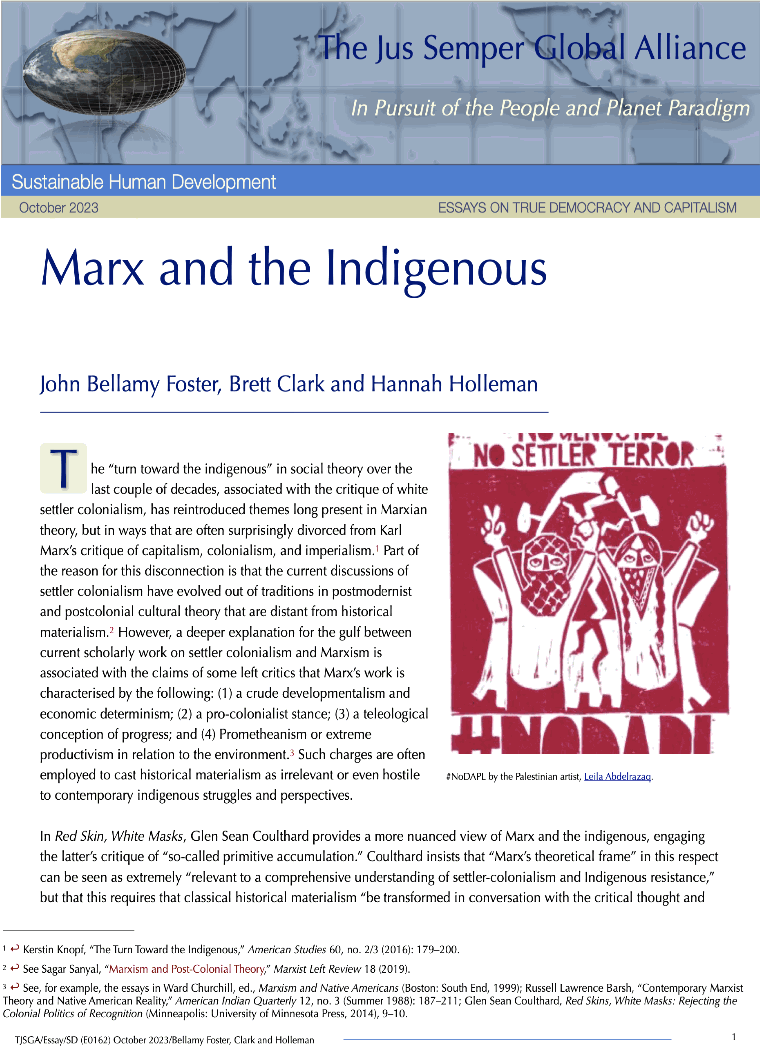Marx and the Indigenous
John Bellamy Foster, Brett Clark and Hannah Hollema
The “turn toward the indigenous” in social theory over the last couple of decades, associated with the critique of white settler colonialism, has reintroduced themes long present in Marxian theory, but in ways that are often surprisingly divorced from Karl Marx’s critique of capitalism, colonialism, and imperialism. Part of the reason for this disconnection is that the current discussions of settler colonialism have evolved out of traditions in postmodernist and postcolonial cultural theory that are distant from historical materialism. However, a deeper explanation for the gulf between current scholarly work on settler colonialism and Marxism is associated with the claims of some left critics that Marx’s work is characterised by the following: (1) a crude developmentalism and economic determinism; (2) a pro-colonialist stance; (3) a teleological conception of progress; and (4) Prometheanism or extreme productivism in relation to the environment. Such charges are often employed to cast historical materialism as irrelevant or even hostileto contemporary indigenous struggles and perspectives. Taking these criticisms seriously, we return to the classical foundations of Marxian theory in order to ascertain where—if anywhere—the analysis went wrong, what can be usefully derived from it, and how to construct (or reconstruct) a Marxian critique of colonialism relevant to contemporary struggles. Through this assessment, we believe, the strengths of the classical historical-materialist argument will become evident. For a full read of this brief, click here or on the picture to download the pdf file. |






